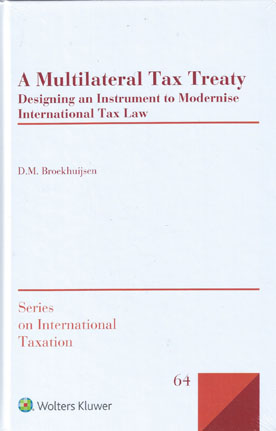
A Multilateral Tax Treaty addresses the legal and political aspects of a multilateral convention in the field of international taxation. Many states have set out to develop a multilateral tax instrument with the purpose of amending bilateral treaties in a quick and comprehensive manner. The recent adoption by as many as 100 jurisdictions of the Multilateral Convention to Implement Tax Treaty Related Measures to Prevent Base Erosion and Profit Shifting (the OECD Multilateral Instrument) is the most prominent step in this direction. This book shows how the BEPS Project has merely unveiled the problems related to bilateral tax relationships and articulates initiatives to ensure the sustainability of a multilateral consensus. In doing so, it also explains and evaluates the OECD Multilateral Instrument, addresses its procedural elements, and the practical issues relating to its implementation.
What’s in this book:
Drawing on the fields of international law, international relations, and political science, the author has developed a design strategy, complete with draft clauses, that fundamentally transforms the way states cooperate in the field of international tax, effectively addressing such problems as the following:
This book discusses in depth the phenomenon of multilateral cooperation in international taxation and the far-reaching implications of the international tax reform currently underway. In combination with its focus on procedural issues such as opt-outs and reservations, the structural solution presented enables the reader to evaluate the multilateral reform currently underway and to understand the legal and political angles of the implementation of the OECD Multilateral Instrument. The author’s original research and his recommendations for future development of the topic offer deeply informed guidance to policymakers, practitioners and other tax professionals, and academics.